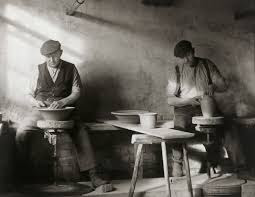Michael Haneke's The White Ribbon is a handsome, well-mounted film that earned my grudging admiration, but left me cold. Haneke seems to be investigating the roots of fascism and the collective unconscious guilt of the German people by presenting an allegorical drama of mysterious crimes in a remote Westerwald village circa 1913. Haneke portrays the village as monstrously repressive. Behind closed doors lurk physical abuse, sexual abuse and misogyny. The town's patriarchs' behave with a bourgeois circumspection that masks depravity.
Haneke has stacked the deck here. No one smiles, relishes a meal or has a positive sexual encounter. The film's one romance is furtive. There is no joy in Mudville. Haneke is adept with his players, especially the young. The White Ribbon is a startling film visually in high contrast black and white. The look is reminiscent of the work of August Sander, perhaps overly so, the film feels embalmed. And too pat, even in its refusal to explain its central mystery. In Cache, Haneke was able to create an unsettling tableau informed by the realties of modern France. With The White Ribbon, Haneke is again swinging for the fences, but has created an elephantine art object that is hermetic, moribund and morbid. Nevertheless recommended. (10/13/22)
 |
| Potters at Work by August Sander |






No comments:
Post a Comment